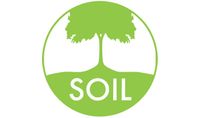

SOIL Haiti
- Home
- Companies
- Soil and Groundwater
- SOIL Haiti
SOIL Haiti
Since 2006, SOIL has been transforming wastes into resources in Haiti. Through the use of ecological sanitation, SOIL is working to create a revolutionary social business model for providing access to safe, dignified sanitation that produces rich, organic compost as a natural resource for Haiti’s badly-depleted soils, while also creating economic opportunities in some of the world’s most under-resourced communities.
Company details
Find locations served, office locations.
- Business Type:
- Professional association
- Industry Type:
- Soil and Groundwater
- Market Focus:
- Globally (various continents)
This company also provides solutions for other industrial applications. Please, visit the following links for more info:
